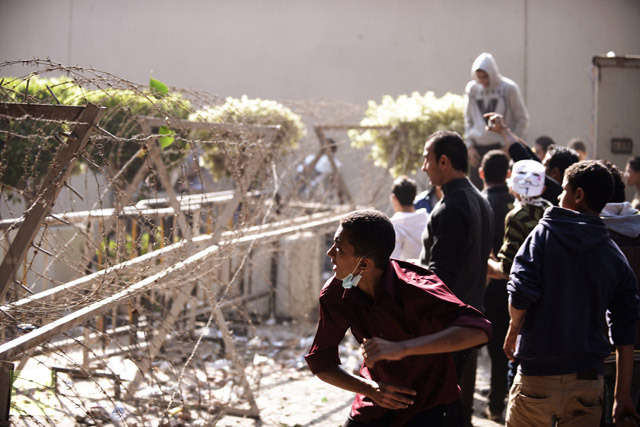TEL AVIV – This week I visited the Knesset for the third time in my life.
The first time was during the War of Independence, when the site was not yet under Israel’s control.
Today, it’s an immense building. If Netanyahu’s policy of going to war against the Americans will be implemented, even the US Army won’t be able to take over the Knesset building. Israel’s parliament looks like the formidable fortress of a strong nation: barbed wire, thick walls, police officers and checkpoints. An ugly citadel surrounded by even uglier buildings.
I haven’t seen a more fortified fortress in any other capital. And so, even if the planned war takes place, the Knesset will survive. This is what we call a secure democracy.
In the fortified building that is Israel’s Knesset, officials are redrafting history, as well as the future. The future we looked forward to once upon a time, when the hill was still empty. Via the Nakba Law and the education minister’s plan to remove the term from the curriculum, it appears that the future will be all about erasing everything that exists.
I remember the Nakba. I saw it to a much greater extent than the education minister, who apparently only heard about it. It was a harsh, merciless campaign of young soldiers who spilled their blood while fighting a determined enemy that was eventually defeated. Yet the enemy that was defeated is not a geometrical unknown, but rather, a people who still exist.
Its parents and grandparents fought well. Otherwise, we wouldn’t have suffered so many casualties.
I was wounded in battle, but I believe that the education minister must educate our young people to be heroes by teaching them that this war had losers too, and that they too have a narrative. They don’t have the country that was theirs but they have a history, and no education minister can erase the defeated people from its powerful memory. The Nakba fighters fought heroically, but we fought better.
The victory is manifested by the fact that the State of Israel exists today and not by the erasure of the losing side’s narrative from the story of the state’s establishment. The Germans tried to teach German history without the Holocaust. It didn’t work. The Holocaust is a powerful element in Germany today, because it was a powerful event. The same is true for all sorts of hasty laws by ministers who wish to correct history.
Our education minister did not invent this idea. Stalin made sure to write a new Russian history, yet the past reclaimed it. A narrative that turns into a myth constitutes more history than any education minister can create; even if Arab children here learn Bialik’s songs and are forced to hoist Israel’s flag over their homes every morning and sing our national anthem every evening, at night, in hiding, they will read Arabic poetry. Because Arabic poetry is them. There’s nothing we can do about it.
While inside the Knesset fortress, I thought that maybe it is still possible, before my death, to turn this state into a Jewish State – not one populated by zealous masses called Jews, but rather, Jews like we used to be; a state where we respect those who fought against us and were defeated. When that will happen, we will see the establishment of an Arab state alongside us, and the city of Jerusalem, also known as Al-Quds, will become the capital of two states, one Jewish and one Arab. And then peace will come to Israel. Amen.
Yoram Kaniuk is a renowned Israeli novelist and journalist. He is the recipient of many prizes and his work has been translated into 25 languages. This article is distributed by the Common Ground News Service (CGNews) with permission from Ynetnews.

